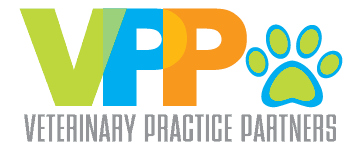
VPP logo
Veterinary Practice Partners Expands By More Than 50% In Past Year, As Partnership-Focused Model Gains Traction With Veterinarians Nationwide
VPP’s differentiated approach emphasizes co-ownership and equity opportunities for veterinarians, keeping pet medicine in the hands of veterinarians
Veterinary Practice Partners (“VPP”), the veterinary community revolutionizing vet practice ownership and support, grew more than 50% within the past year through new partnerships and practice openings, expanding from 90 co-owned veterinary hospitals and clinics in June 2022 to 140 locations across 27 states today.
VPP’s unprecedented growth signals increasing traction for its differentiated partnership model. Amid a veterinary landscape dominated by a handful of large aggregators that focus on buying out doctors from their practices, VPP has pioneered an innovative co-ownership model: VPP co-owns practices with veterinarians, facilitating capital investments in their practices and providing development and mentorship opportunities.
"At Veterinary Practice Partners, we're changing the landscape of vet practice ownership and support, and this year’s impressive growth proves that more and more veterinary doctors see us as their partner of choice," said John McDonough, CEO at VPP. "Our unique co-ownership model empowers veterinarians at all career stages to achieve their goals – whether that’s a recent graduate looking for mentorship opportunities, a long-tenured doctor looking to open a new practice or a veterinarian navigating eventual retirement and looking to identify a path to keep their legacy alive. Our comprehensive suite of resources allows our partners to focus on delivering the best veterinary care possible."
While doctor partners focus on providing exceptional medical care for pets, VPP delivers a wide array of operational support capabilities, including marketing, finance and accounting, IT support, human resources, and staff recruitment. VPP’s mission of keeping veterinary medicine in the hands of veterinarians, its strategy to partner at all career stages, and the emphasis on offering staff veterinarians an equity stake in their practice creates opportunities for newer doctors – many of whom are female – to become practice owners more efficiently than they could otherwise. It also ensures that the legacies built by experienced veterinary owners will continue long past their retirement.
The newest addition to the VPP community, El Paseo Animal Hospital, offers a timely example of VPP’s differentiated model. After nearly a decade of serving the Coachella Valley community as dedicated staff veterinarians, husband and wife duo Dr. Rachael Jeffrey and Dr. David Jeffrey yearned to own their own practice, where best-in-class care of dogs, cats, and exotic pets would be their primary focus. By partnering with VPP, their dream of opening a practice came true, allowing them to continue to focus on the veterinary care they are passionate about.
“As the most trusted partner-of-choice in a fast-changing industry, VPP understands the challenges of managing both the clinical and business aspects of a practice,” said Dr. Doug Aspros, Chief Veterinary Officer & Medical Advisory Board Chair of VPP. "Our unique community-based model underscores VPP’s pledge to leave medicine in the hands of doctors. We empower partner hospitals and clinics with the resources and education to achieve exceptional animal care for pets and their owners.”
Veterinarians interested in joining VPP or exploring co-ownership opportunities can find more information at www.vetpracticepartners.com.
More from Veterinary Practice Partners
- Veterinary Practice Partners Enters into Partnership with Dr. Michelle Rudd of Annapolis Cat Hospital and Bay Ridge Animal Hospital, Expanding the Pathway to Ownership for Female and Associate DVMs
- Veterinary Practice Partners’ Employee Assistance Fund Raises $40,000 at Homecoming Gathering, as Co-Ownership Community’s Culture of Support Deepens Post-Pandemic
- Veterinary Practice Partners Adds New Animal Hospital Group to its Community, as Differentiated Model Gains Traction

 2 years ago
2 years ago  3244 views
3244 views
